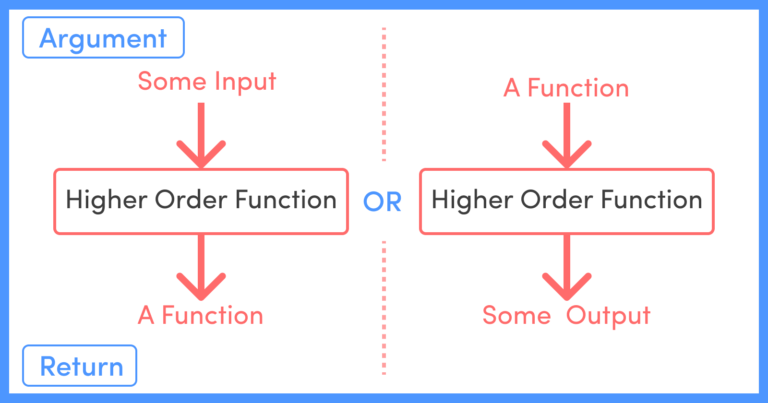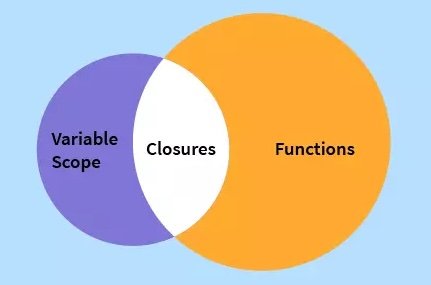
Preparing for a JavaScript interview can be daunting, whether you’re a fresher or experienced professional. This guide covers latest Javascript interview questions and answers to help you succeed.
Here’s a list of the frequently asked javascript questions with answers on the technical concept which you can expect to face during an interview.
var name = 'John';
let age = 30;
const isStudent = true;
– String
– Number
– Boolean
– Null
– Undefined
– Symbol (ES6)
– BigInt (ES2020)

typeof variable;
| Feature | var | let | const |
| Scope | Function scope | Block scope | Block scope |
| Hoisting | Hoisted and initialized with undefined | Hoisted but not initialized | Hoisted but not initialized |
| Reassignment | Can be reassigned | Can be reassigned | Cannot be reassigned |
| Redeclaration | Can be redeclared | Cannot be redeclared | Cannot be redeclared |
| Temporal Dead Zone (TDZ) | No | Yes | Yes |
| Initialization | Optional (can be initialized later) | Optional (can be initialized later) | Must be initialized during declaration |
function greet(name) {
return 'Hello ' + name;
}
// Arrow function
const greet = (name) => 'Hello ' + name;
A function that takes another function as an argument or returns a function as a result.

-for loop
– while loop
– do-while loop
– for…in loop
– for…of loop
if (condition) {
// code to be executed if condition is true
}
else {
// code to be executed if condition is false
}
== compares values while === compares data types also.
For eg:
Var a=10
Var b=”10”
console.log(a==b)
The above will return true because it compares only values.
console.log(a===b)
The above will return false because it compares values and data types also and both variables have values of different data types.
let fruits = ['Apple', 'Banana', 'Cherry'];
– push()
– pop()
– shift()
– unshift()
– map()
– filter()
– reduce()
– forEach()
– find()
– indexOf()
let person = {
name: 'John',
age: 30,
isStudent: true
};
console.log(person.name); // Dot notation
console.log(person['age']); // Bracket notationStudent: true
document.getElementById('elementId');
document.querySelector('.className');
document.querySelectorAll('tagName');
document.getElementById('elementId').innerHTML = 'New Content';
A closure is a function that remembers the variables from the place where it was defined, regardless of where it is executed later.

function outerFunction() {
let outerVariable = 'I am outside!';
function innerFunction() {
console.log(outerVariable);
}
return innerFunction;
}
const myClosure = outerFunction();
myClosure(); // Logs: I am outside!
The event loop is a mechanism that handles asynchronous operations in JavaScript, allowing non-blocking code execution.
function fetchData(callback) {
setTimeout(() => {
callback('Data fetched');
}, 1000);
}
fetchData((data) => {
console.log(data); // Logs: Data fetched
});
A Promise is an object representing the eventual completion or failure of an asynchronous operation.
async function fetchData() {
try {
let response = await fetch('https://api.example.com/data');
let data = await response.json();
console.log(data);
} catch (error) {
console.error('Error:', error);
}
}
Prototypal inheritance is a feature in JavaScript where objects can inherit properties and methods from other objects.
function Animal(name) {
this.name = name;
}
Animal.prototype.speak = function() {
console.log(this.name + ' makes a noise.');
};
function Dog(name) {
Animal.call(this, name);
}
Dog.prototype = Object.create(Animal.prototype);
Dog.prototype.constructor = Dog;
const myDog = new Dog('Rex');
myDog.speak(); // Logs: Rex makes a noise.
– let and const
– Arrow functions
– Template literals
– Default parameters
– Destructuring
– Rest and spread operators
– Classes
– Modules
let [a, b] = [1, 2];
let {name, age} = {name: 'John', age: 30};
try {
// code that may throw an error
}
catch (error) {
console.error(error);
}
finally {
// code that will run regardless of error
}
The finally block contains code that will be executed regardless of whether an error occurs or not.
Mastering the questions and concepts outlined in this guide is essential for excelling in javascript interviews. By thoroughly preparing with these common interview questions and their answers, you’ll be well-equipped to showcase your expertise and confidence during the interview process.
If you’re looking to further enhance your javascript skills and gain hands-on experience, consider joining Netmax Technologies. As a premier institution in IT training, we offer comprehensive courses ranging from 45 days to 4-6 months industrial training , designed to prepare you for real-world challenges and career success. Our experienced instructors and practical training approach ensure that you gain the necessary knowledge and skills to thrive in the competitive field of javascript. Enroll today and take the first step towards becoming a proficient a web developer with Netmax Technologies!